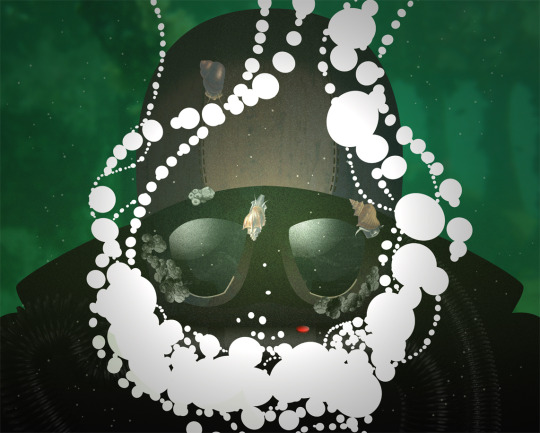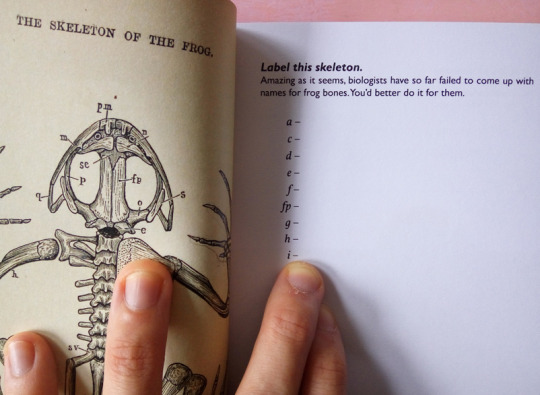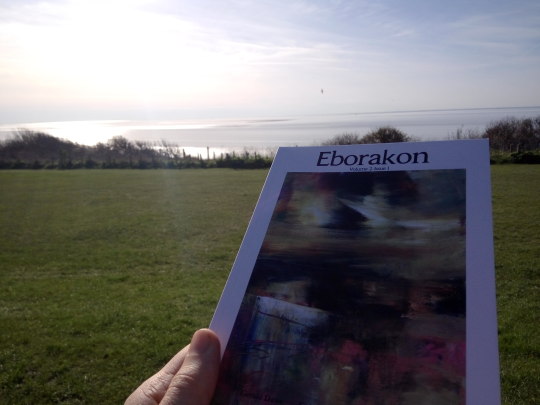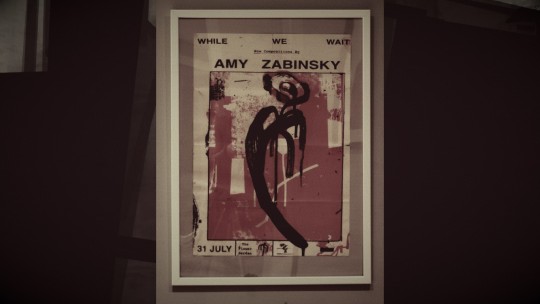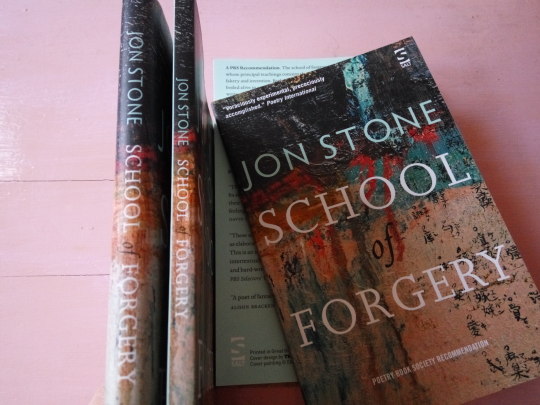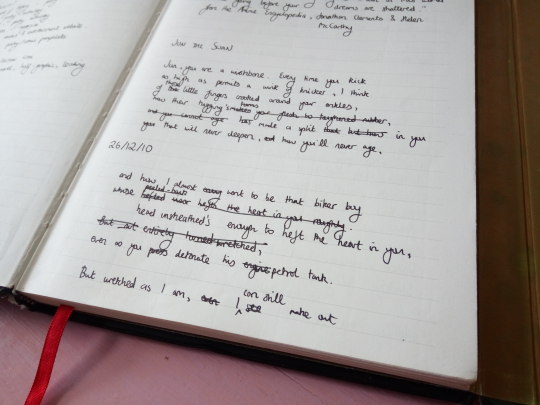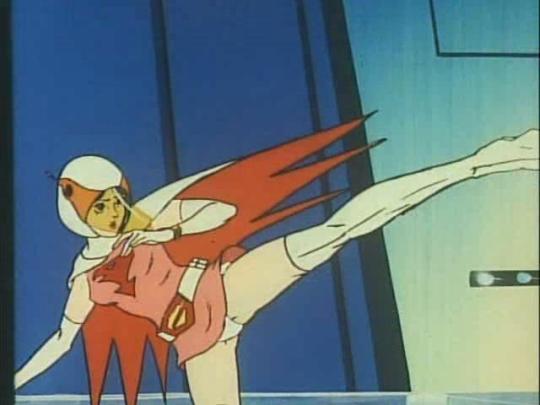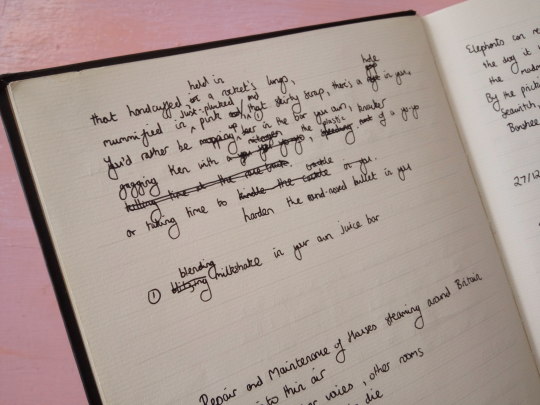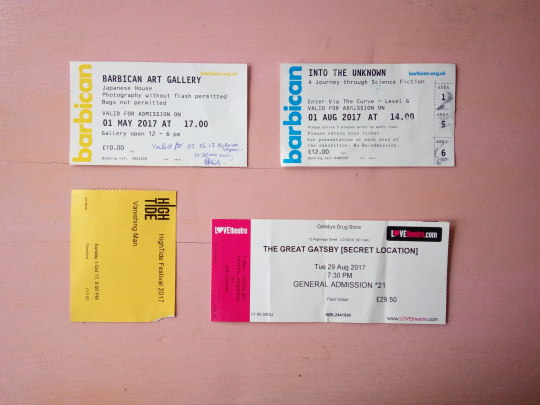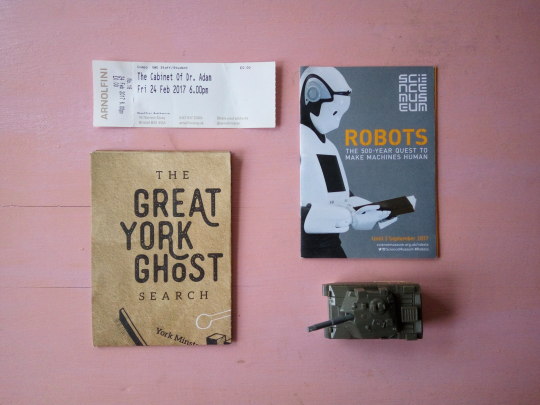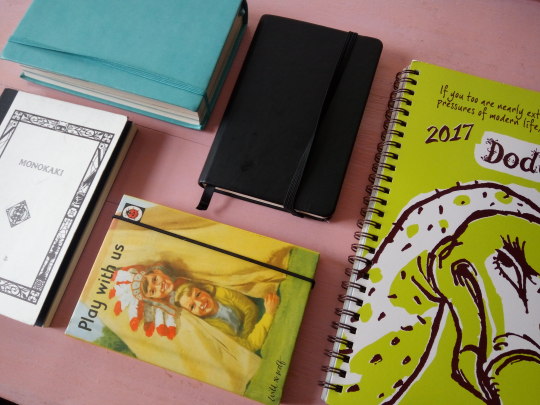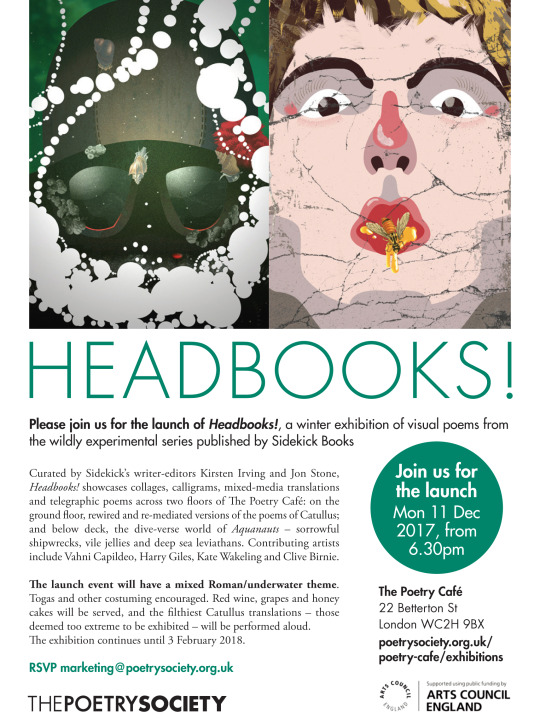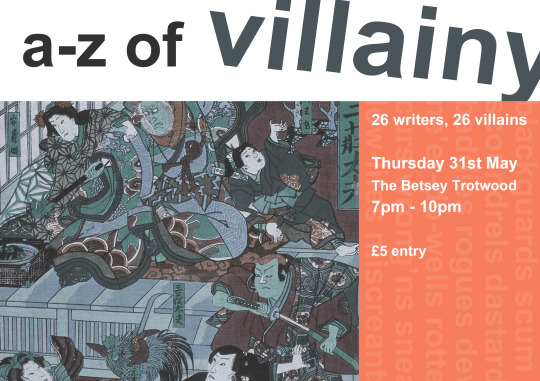
Two upcoming events: I’m co-hosting an A-Z of Villainy this Friday, from 7pm at the Betsey Trotwood in Farringdon. It’s a simple premise: writers reading pieces inspired by villains. 26 writers, 26 villains. Some of the writers may or may not be undercover villains themselves, and liable to hatch a scheme in the midst of proceedings. If no one else does, I will. If I can think of something dastardly enough.
I’m co-hosting this event with Kate Potts and Holly Hopkins, and contributing writers include Will Harris, Astra Papachristodoulou, Theophilus Kwek, Nisha Ramayya and Rishi Dastidar.
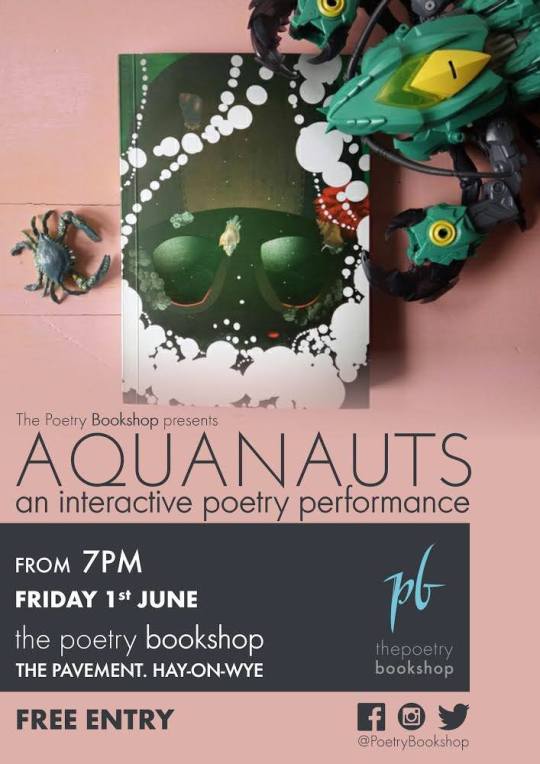
Then on Friday I’ll be in Hay-on-Wye with my Sidekick co-editor Kirsten Irving and two Sidekick poets, Abigail Parry and Clive Birnie. The fabulous Poetry Bookshop have invited us to host an interactive poetry performance linked to our interactive handbook, Aquanauts. We’re bringing party bags.
